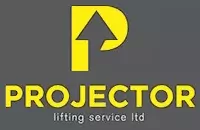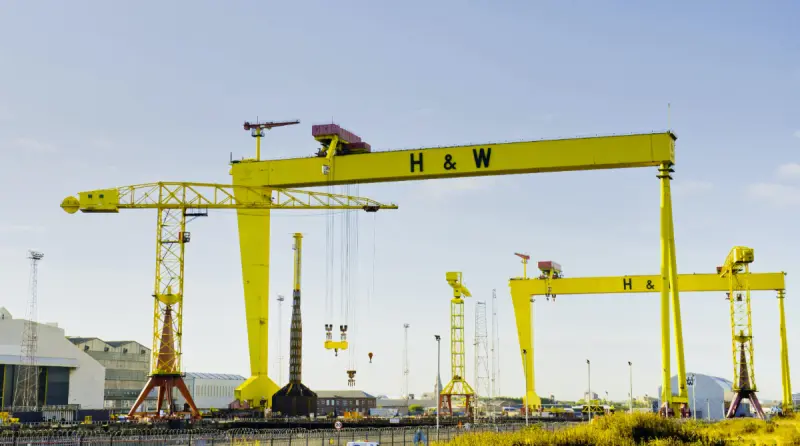Do I need a contract lift crane hire? If you have a construction project to plan, you may be asking if contract lift crane hire is right for you. We look at the reasons to choose contract lift crane hire.
What does crane hire & contract lift mean?
Contract lifts are one of the most effective alternatives to CPA crane hire (Consumer Protection Act), with many CPA crane hire agreements that the customer or company has to agree to before hiring a specific crane and qualified operator.
With a hiring party contract lift, the crane hire company is fully responsible for the maximum liability, equipment, crane operators and any mishaps on the customer's site.
They will plan the execution of the lift, help you select a suitable crane, arrange and designate an appropriately trained Appointed Person, supervise the task and take care of the slinging and signalling.
Contact your local crane hire company for greater details on the continued hire charges and overall financial costs.
What is the difference between a standard crane hire vs contract lift hire?
Standard CPA Crane Hire
With a standard crane, you'll find that, as the hirer, you have all the legal responsibility. It's essential to be insured once you've hired cranes against damage and injury to yourself, workers or the equipment during a lifting task.
It's also paramount that you employ an Appointed Person with suitable professionals to operate and supervise the vehicle lift whilst in motion, as this will ensure you're compliant with the CPA rules.
You have further responsibilities, such as looking out for road closures and ensuring all aspects of your project, including the environment and CPA model conditions, are safe systems.
As the customer, it is your job to curate detailed method statements and risk assessments that address all the potential dangers and ways to prevent them. The upfront costs of a standard CPA crane hire tend to be much cheaper than that of a contract lift hire.
CPA Contract Lift
With a hire and contract lift, the responsibility of the operator, crane and its overall lift operation comes down to the construction plant hire association for the duration of your job or project.
The hirer will ensure the plant and take legal liability in the event of loss, damage, injury or destruction of property in the process. The public liability and plant insurance will typically cover damage to your lifted goods or materials.
Many provide insurance cover and organise the site visits and site surveys with additional personnel of any property arising that you require your cranes, ensuring all aspects are fully managed so that you can rest assured with the peace of mind that you're in safe hands.
Lifting contract services will help with saving money and help significantly reduce risks compared with other services.
What are the uses of Cranes in the Construction Industry?
Floating cranes are sometimes referred to as crane vessels or crane ships, and they are primarily used for port or bridge construction and the loading and unloading ships with lots of cargo. Floating cranes have a capacity of approximately 9000 tonnes.
Folding boom cranes are another type of crane you can hire. They can also be called loader cranes, which are used to load heavy equipment onto platforms or trailers with their hydraulically-powered, articulated arm.
Overhead cranes often called suspended cranes, are more notably utilised throughout factories and warehouses to lift weighty loads.
Telescopic cranes are fitted with tubes from their inside with a hydraulic mechanism that allows them to increase their height gradually. These cranes are most valuable when transporting consumer goods from one location to another.

Sky cranes known in the industry as aerial cranes, appear much like helicopters and are best used when specific work targets are challenging to reach whilst on land. They can also be used to their full potential to lift large loads of equipment or products onto high-rise buildings.
Railroad cranes are another option for those working on the construction of brand-new railway lines or in the process of maintaining existing ones. Such cranes tend to offer flanged wheels along the bottom to assist in movement along the train tracks.
Tower cranes are a more modern rendition of the balance crane, typically used to assist urban construction sites. Once the tower crane is fixed firmly to the ground for the duration of construction, it can provide you with height and capacity. One of the most significant benefits of tower cranes is that they surpass numerous other existing cranes' loading and lifting operation capacities. They are some of the most stable cranes available and have the ability to endure multiple challenging tasks.
Crawler cranes provide maximum strength and mobility whilst mounted on top of a caterpillar track that helps them handle enormous loads. Crawlers are mobile and don't take so much time to set up, as they don't need outriggers and are incredibly robust. Suppose your job site or other property is relatively unprepared; a crawler track will make the job so much easier.
Rough terrain cranes are a crane mounted onto an undercarriage with rubber tires designed explicitly to complete safe off-road operations that aren't on the public highway, especially those where vehicle-mounted cranes aren't suitable for the job.
The outriggers will then extend horizontally and vertically, stabilising and levelling your crane for hoisting tasks for any ground conditions.
Vehicle-mounted cranes are most frequently utilised for construction projects with one engine that caters to the undercarriage and crane.
They are mounted onto trucks with rubber tires that offer excellent, high-quality mobility. Such cranes have outriggers useful for stabilising your truck vertically or horizontally expanding.
Mobile cranes are the most versatile and standard type of crane used throughout construction sites in the UK.
They provide telescopic boom mounted on a mobile platform and steel truss, all of which can be wheeled on a cat track or railway line. A boom is usually hinged onto the bottom that operators can raise or lower using their hydraulic cylinders or cables.

Uses Of A Crane Outside Of Construction
Construction may be your initial thought when considering the uses for crane rental or contract lift services; however, plenty more industries and sectors across the country utilise different types of cranes to get the job done. Some include the following:
Power Companies
The power industry in the UK are regular crane users, many of which utilise onshore wind turbines that have blades lifted skillfully into place using crane company's equipment, such as lattice boom cranes, crawler cranes or tower cranes.
The Dockyard
Britain's boat ports operate dozen more cranes than the UK building industry.
Often you'll notice along the quayside of dockyards and ports across the country numerous tower cranes that stand like sentinels. They are typically used to unload loose commodities, fruit and grains.
Local Authorities
Local authorities typically have the contact number of a local crane lift hire company for any one-off mobile emergency.
Such emergencies may include righting an overturned truck or lorry blown over in the wind or large trees falling across busy roads after a significant storm.
Manufacturing & Nuclear Power Industries
The steel manufacturing industries tend to use large gantry cranes primarily for lifting large buckets filled with molten steel from hot furnaces and transporting them to rollers.
Often the nuclear industry will use polar gantry cranes on circular tracks for entire lifting fuel rods that are highly radio-active in and out of their reactor core that generates all the heat.
The Engineering Sector
Each sector of all UK industries will often require the assistance of a local crane hire company, especially if their field involves tasks such as lifting heavy equipment during the manufacturing process.
Engineering businesses are often at the top of the list regarding those requiring hire from crane providers.
Are you planning to use contract lift crane hire in the UK? If you need to lift heavy objects or machinery, we offer lifting equipment and lifting services for the construction and industrial industries.
Follow the links below to find out more about our specialist lifting services throughout the UK.

